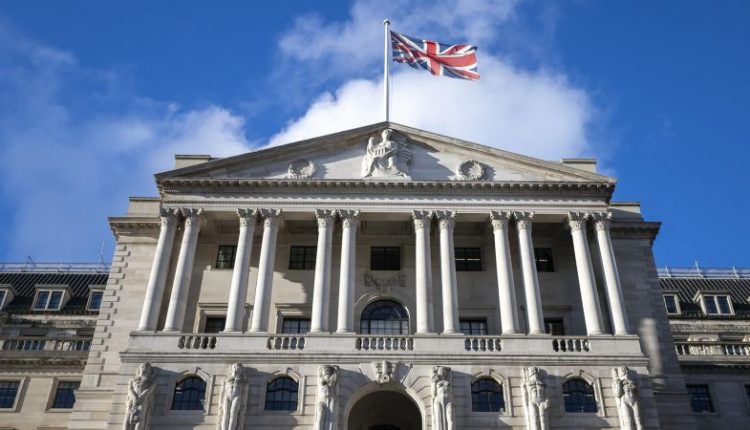The Bank of England paused its historic interest rate hiking campaign for the first time in nearly two years Thursday after inflation fell unexpectedly in August.
The decision keeps the main borrowing cost for commercial banks in the United Kingdom at 5.25% — still the highest level since February 2008 following 14 rate hikes in a row. The Federal Reserve also kept rates on hold Wednesday, as did Switzerland’s central bank earlier on Thursday.
The Bank of England did not rule out further rate increases, however, although it said it expected headline inflation to “fall significantly” in the near term, reflecting lower energy and food inflation.
“Further tightening in monetary policy would be required if there were evidence of more persistent inflationary pressures,” it added in a statement.
The odds of a pause by the Bank of England rose sharply after data Wednesday showed that UK consumer prices increased 6.7% in August compared with a year earlier.
Economists polled by Reuters had forecast inflation would rise to 7% — from 6.8% in July — because of higher oil prices.
The downside surprise was driven by falls in the cost of hotel stays and air fares, as well as food prices rising less than in August 2022, according to the Office for National Statistics.
Core inflation, which strips out volatile food and energy costs and is seen as a better indicator of underlying price pressures, came in at 6.2%, down from 6.9% in July. Services inflation also slowed sharply to 6.8% in August, from 7.4% in July.
Martin Beck, chief economic adviser to the EY ITEM Club, said the figures signaled an “inflexion point has been reached in underlying inflation.”
A recent slowdown in UK economic activity and signs that the job market is weakening could drag inflation down further.
After increasing slightly in the second quarter, gross domestic product shrank 0.5% in July, with output declining in most sectors.
And although wages are still increasing at a record rate, unemployment has ticked up and vacancies have dipped below 1 million for the first time in two years.
Company insolvencies, meanwhile, jumped 19% in August compared with a year earlier to more than 2,300. That’s higher than levels seen while government support measures were in place during the pandemic, and also higher than pre-pandemic numbers.
“There is an air of underlying weakness,” chief UK economist at Capital Economics Paul Dales said about July’s GDP data. “It would make sense that underlying economic growth is weakening, given that the dampening effect of higher interest rates should be building now.”
— This is a developing story and will be updated.
Read the full article here

